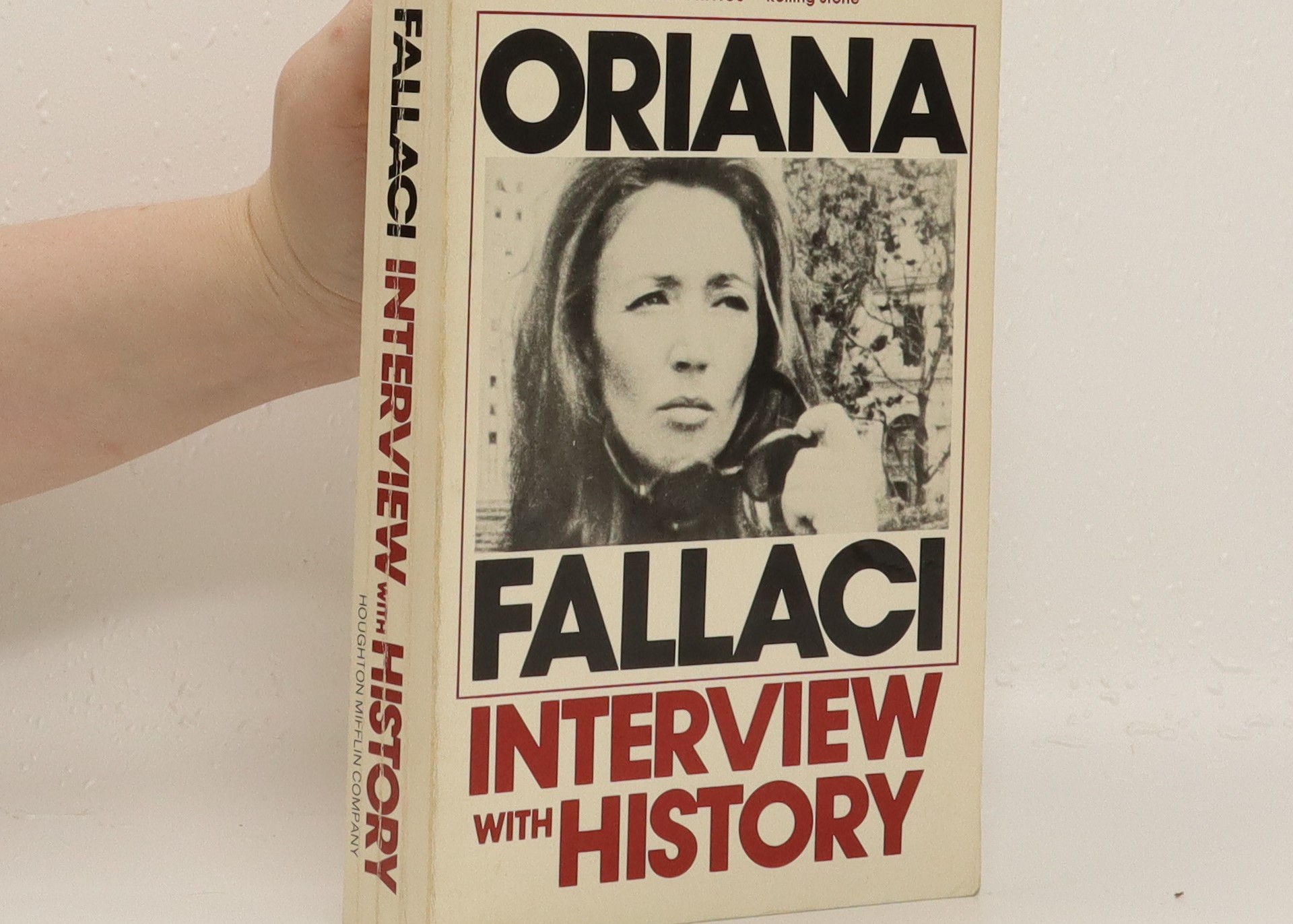
"I can't rule out that our existence is decided by a few, by the beautiful dreams or whims of a few, by the initiative or the will of a few... Of course, it's an atrocious hypothesis. Even more disconsolate, you wonder how those few: smarter than us, stronger than us, more enlightened than us, more enterprising than us? Or individuals like us, neither better nor worse than us, ordinary creatures who do not deserve our wrath, our admiration, our envy?
This is how Oriana Fallaci started her book, Interview with History. It was published in 1974 and it is a collection of the author’s most memorable historic interviews with world leaders and politicians – some of which were translated in English for the very first time. It includes names such as Ariel Sharon, Yassir Arafat, the former Shah of Iran, Willy Brandt, Golda Meir, Indira Gandhi, Lech Walesa, Hussein from Jordan, Nenni and Amendola, Giulio Andreotti, the Dalai Lama, Robert Kennedy, and many others.
Oriana Fallaci considered herself a writer, rather than a journalist, and she approached the interviews with a direct and straight-to-the-point approach. In fact, one of the interviews is the one with Henry Kissinger – the former Secretary of States of the Unites States – in which she got him to call the Vietnam war a “useless war” and to portray himself as “a cowboy”. Kissinger went later on to define this interview as "the most disastrous conversation I ever had with the press."
The book has been defined as a passionate and brave work which put together the interviews of the people who defined the history of the second half of the last century.
The book “conveys all of Fallaci's stubbornness, her desire to understand the world and men, her unmistakable style, the strength of her writing. And still today it resonates as a ruthless condemnation of power, an invitation to disobedience, a passionate hymn to freedom”.
Oriana Fallaci (1929-2006) came from Florence and besides being a writer, she also worked as a journalist in the capacity of war correspondent in the most important conflicts in recent times – from the Vietnam war, the Indo-Pakistani war, to the Middle Est and South America. She was also a specialist reporter for the Italian magazine Europeo and worked for some of the most prestigious newspaper in the world – including the Times and the New York Times. Her famous and renowned books became bestseller in Italy and are translated all over the world, more specifically into 21 languages including English, Spanish, French, Dutch, German, Greek, Swedish, Polish, Croatian and Slovenian.
As a matter of fact, the dean of the Columbia College of Chicago, who gave her the honorary degree in literature, described her as “one of the world's most widely read and loved authors”. During World War II, Oriana Fallaci joined the resistance and the group Giustizia e Libertà (Justice and Liberty) and started her career as a teenager, in 1946, when she became a special correspondent for an Italian paper.
She received numerous awards, like St. Vincent Prize for journalism – she won it twice -, the Bancarella Prize in 1971, the Viareggio Prize in 1979 and Prix Antibes in 1993. She gave lectures at the University of Chicago, at Yale University, Harvard University and Columbia University.
To use her own words, “There are times in life when keeping silent becomes a guilt and speaking out becomes an obligation. A civic duty, a moral challenge, a categorical imperative from which one cannot escape”.



